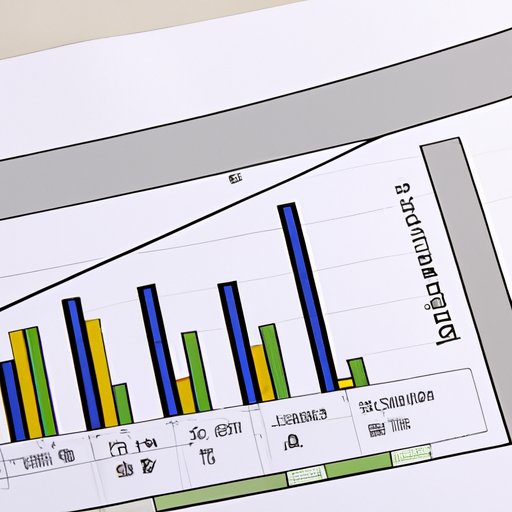Introduction
Projected financial statements are documents that provide a forecast of a company’s financial performance over a period of time. They are used to assess the likelihood of meeting financial goals and to make strategic business decisions. The purpose of preparing projected financial statements is to predict future financial position and performance based on past performance and current trends.
The three main components of a projected financial statement are the income statement, balance sheet, and cash flow statement. Each of these documents provides important information about the company’s financial health and can be used to make informed decisions.
Understanding the Components of a Projected Financial Statement
The income statement is a report that shows a company’s revenues, expenses, and net income over a period of time. It is used to determine the profitability of the company and can be used to compare performance between periods.
The balance sheet is a report that shows the company’s assets, liabilities, and shareholder’s equity at a given point in time. It is used to assess the financial health of the company and can be used to compare performance between periods.
The cash flow statement is a report that shows the company’s cash inflows and outflows over a period of time. It is used to assess the liquidity of the company and can be used to compare performance between periods.

The Process of Creating Projected Financial Statements
The process of creating projected financial statements involves forecasting future performance using historical data, estimating cash flows, and gathering relevant information. Forecasting methods such as trend analysis, regression analysis, and Monte Carlo simulation can be used to predict future performance. Cash flows can be estimated by examining past trends and making assumptions about future cash flows. Data must then be gathered from internal and external sources to create the projections.

Interpreting and Utilizing Projected Financial Statements
Once the projected financial statements have been created, they must be interpreted and utilized. The results of the projections should be analyzed to identify potential risks and opportunities. This analysis can be used to inform decision-making and to develop strategies for achieving financial goals. Additionally, the projections can be used to plan for the future by setting financial targets and budgeting accordingly.

Examples of Projected Financial Statements
Example 1: Income statement
This example shows a projected income statement for a hypothetical company. It includes revenues, expenses, and net income for each month over a one-year period.
Example 2: Balance sheet
This example shows a projected balance sheet for a hypothetical company. It includes assets, liabilities, and shareholder’s equity for each month over a one-year period.
Example 3: Cash flow statement
This example shows a projected cash flow statement for a hypothetical company. It includes cash inflows and outflows for each month over a one-year period.
Conclusion
Projected financial statements are important documents that provide a forecast of a company’s financial performance. They are used to assess the likelihood of meeting financial goals and to make strategic business decisions. The process of creating projected financial statements involves forecasting future performance, estimating cash flows, and gathering relevant information. Once the projections have been created, they must be interpreted and utilized to inform decision-making and to plan for the future. Examples of projected financial statements include the income statement, balance sheet, and cash flow statement.
(Note: Is this article not meeting your expectations? Do you have knowledge or insights to share? Unlock new opportunities and expand your reach by joining our authors team. Click Registration to join us and share your expertise with our readers.)
